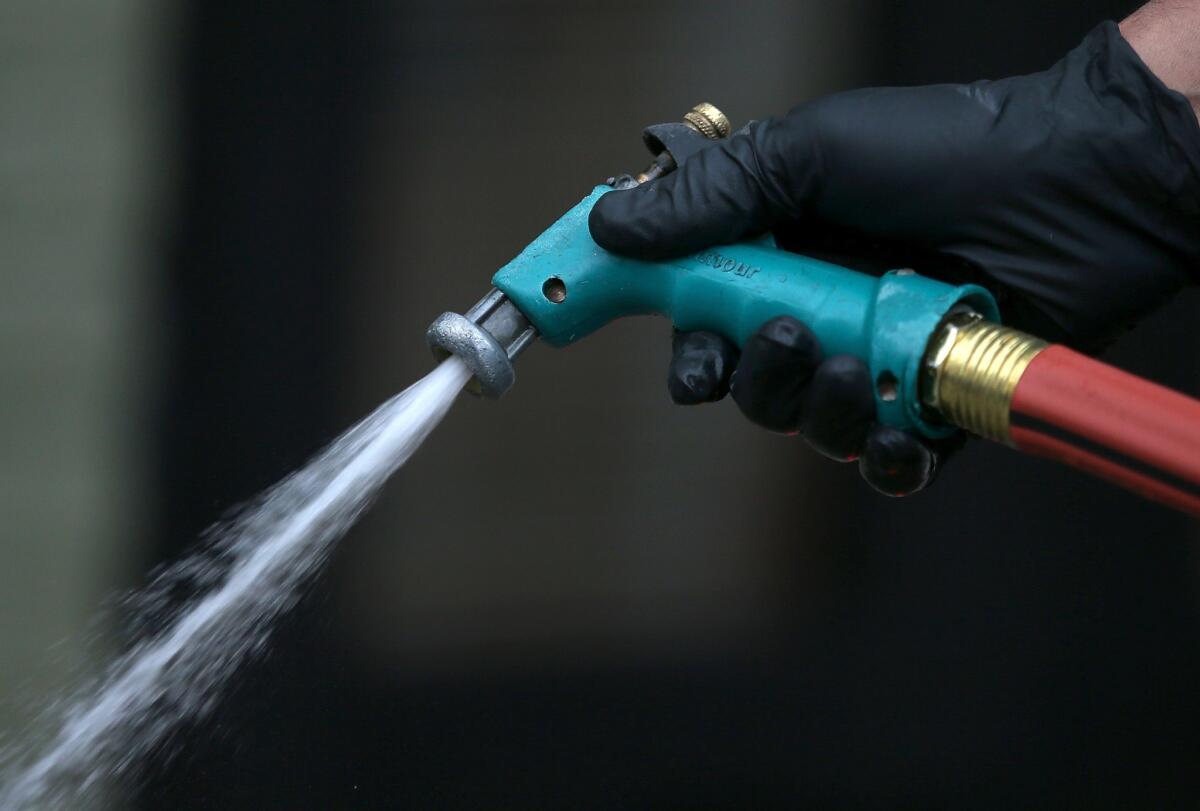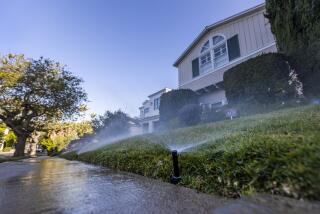Should California water wasters face jail? A drought debate

State water officials bolstered existing emergency regulations this month in response to another year of drought. The new rules came with a warning, too: Even tougher restrictions could be on the way if water agencies and their customers don’t step up their conservation efforts.
But unlike during water crises of the 1970s and 1990s, there was no mention of sending water wasters to jail.
MORE: No, California won’t run out of water in a year
In 1977, amid one of California’s most severe droughts, the Metropolitan Water District proposed a “model” ordinance to penalize repeat water wasters with “a fine of up to $300 or 30 days in jail or both,” according to Los Angeles Times articles.
Many of the outlawed uses were similar to the restrictions being imposed during the current drought: Residents were barred from hosing down sidewalks and driveways, watering during peak hours and refilling fountains and pools.
Those suspected of violating the 1977 ordinance would be served a written notice and, if they continued to ignore the law, local water agencies could limit their water flow – or turn it off altogether. A second offense constituted a misdemeanor. Local police agencies enforced the law, which the city of Los Angeles adopted, according to Times reporting.
Faced with another drought in 1990, local water agencies again adopted emergency regulations. The Central Basin Municipal Water District considered an ordinance that would have made “wasteful water practices” a misdemeanor, publishable by a fine of up to $1,000 or six months in county jail. In Northern California, a Marin County rationing plan called for a $1,000 fine and 30 days in jail for repeat offenders.
The city of West Hollywood imposed similar penalties for violations of its conservation plan. But The Times noted, “To date … no one has been prosecuted.”
MWD spokesman Bob Muir said Monday he was not aware of “anyone who has ever gone to jail” for water waste. Any penalties that the agency itself might impose during the current drought would take the form of surcharges or some other price signal that would incentivize water agencies to conserve, Muir said.
The Los Angeles Department of Water and Power has had a mandatory water conservation ordinance in place since 2009. It calls for fines of up to $300 on residents who repeatedly violate the rules but does not provide for jail time.
“People have been responsive to what we are doing,” spokeswoman Michelle Figueroa said. “So right now, the ordinance is working fine.”
State Department of Water Resources spokesman Doug Carlson said he did not know of any cases of people put behind bars for water waste, but he did not rule out the possibility that it had happened.
He would not speculate on what it would take to impose jail time on profligate water waters during the current drought.
“But I can imagine that it might happen,” he said, “if the water conditions continue to degrade to an unprecedented level.”
Twitter: @ByMattStevens
More to Read
Sign up for Essential California
The most important California stories and recommendations in your inbox every morning.
You may occasionally receive promotional content from the Los Angeles Times.










